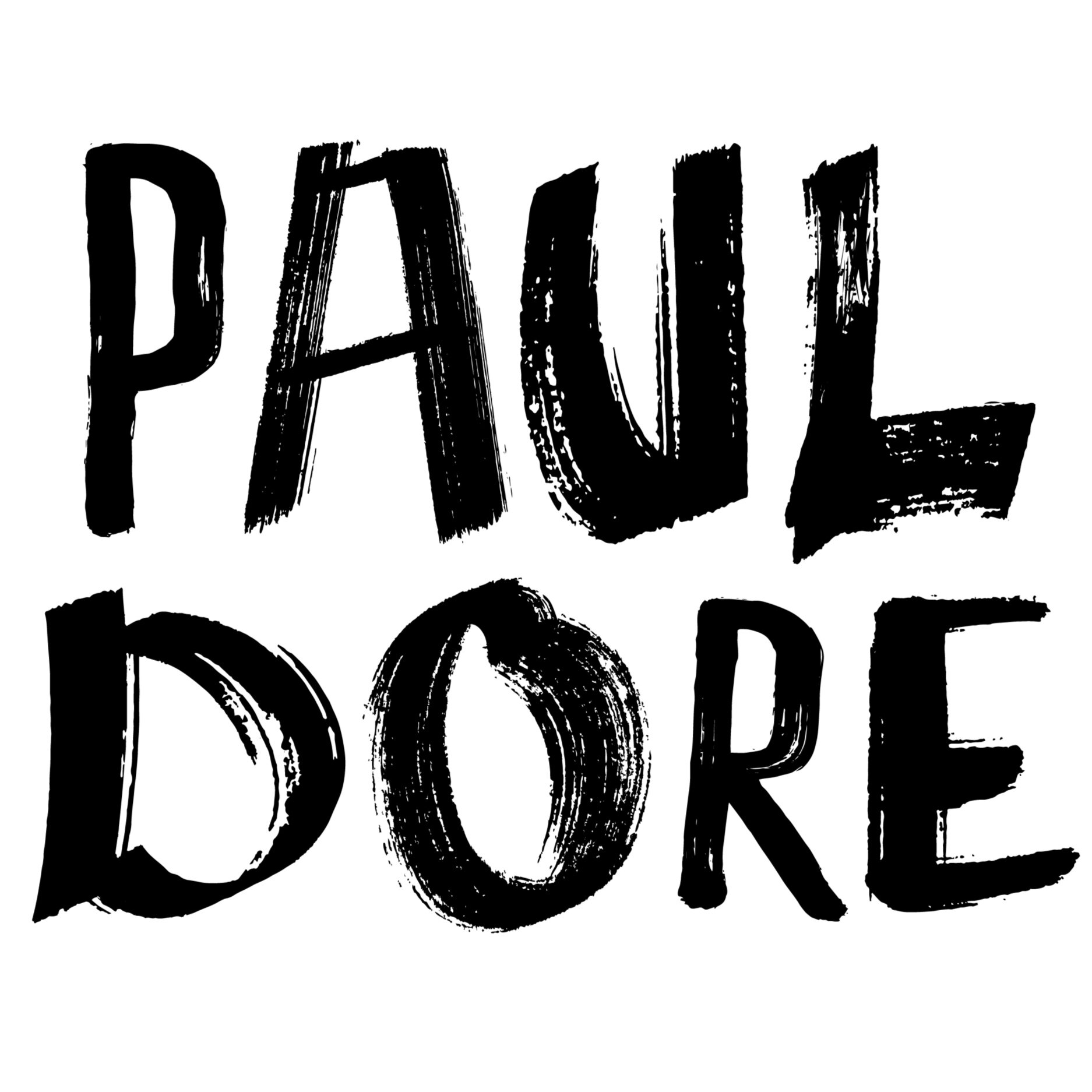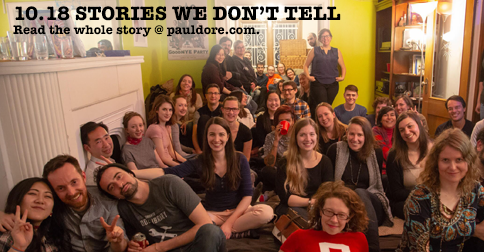10.18 Stories We Don't Tell
Another year, another season of Stories We Don’t Tell has come to a close. We’re officially on summer vacation until September, and it’s time to party. Well, maybe not party, but you get the idea. Really, the summer hiatus has been a great opportunity to take a step back, look at what worked, what didn’t work. Implement and develop new ideas. Let me tell you, we have something in the works that is pretty incredible, and unlike anything that we’ve undertaken yet.
This last event of the year was held in a venue we’ve returned to many times over the years. It’s a pretty special place that is building a community around living and housing, redefining what home ownership means. It’s always an amazing night in this environment where a few different communities intersect and come together. They’ve even been profiled in the media a few times:
When we started this whole wacky idea, for me at least, I really deep down hoped it would be a longterm thing. Five years later, we’re chugging along stronger than ever, and that deep down feeling of hope for a longterm thing has come more up to the surface. Events ebb and flow, popularity and interest goes up and down. To me, if you really believe in what you’re doing, it’s important to just keep going through the lower points. Enjoy the higher points, and figure out why they are high. What’s making this work? This helps make sense of the lower points and can even get you out of a rut you might find yourself in.
Stories We Don’t Tell started in the Toronto Reference Library. Brianne Benness invited a few people, virtually strangers, to a group where we wrote and shared personal essays. After about a year or so, we got so much out of the group that we wondered if the experience could be translated to a larger audience. None of the other storytelling events around had the kind of tone we were looking for, so we decided to start our own event. Stories We Don’t Tell was born.
I’ve thought a lot about why so many events come and go. The only thing I can come up with is the thought we put into our work before we even knew it was going to be an event. We shared our own stories in the essay writing group, and had many discussions about the kinds of stories we liked. We went to many different events and would talk about the tone or how the room felt. By the time we came around to doing our own event, our intentions and goals and vision had already worked itself out.
Our basic process for each monthly event is to have two workshops. The first is an exploratory session where people come with whatever they have - a finished story or even just an idea or two. For the second workshop, we ask people to bring a written version. Not everyone in the storytelling community is on board with this. ‘I write from the stage’ or ‘I like to keep it fresh and wing it’ and blah blah blah. The great thing about doing your own event is that you set the rules. And these are our rules. If you plan on winging it, I’m going to say right now to you what I’ve always wanted to say: Hey, there are a lot of events out there, go and do those events!
Honestly, writing your story down is more for the participant than us. We like to know what people are talking about so we can set the order for the night. But really, writing the story out unlocks new pathways to what you’re trying to communicate, and even recalls specific details that you might not have remembered otherwise.
Perhaps the most controversial thing we do is let people read from notes. Controversial, my ass, right? I’ve had people in the storytelling community say this isn’t even storytelling. Again, that’s fine, so don’t come to our event. To me, it’s like different genres of music. Jazz and blues and rock are all different forms. Folk tales, narrative standup, and personal stories are just different forms of storytelling.
Get over it.
Anyways.
What I love about this process is that I am still learning from it. It works. For the last event of the season, I was writing a story that was really tough for me. Again, something that I wanted to get right. It must have peaked at 30 pages at one point. I kept editing and cutting, and got it down to half that. I had come up with a structure that I thought was so clever. I was congratulating myself about how clever it was, and figured that at the first workshop, everyone else would also recognize just how clever.
As soon as I read it out loud, I knew that it was so clever that I even outsmarted myself. So, actually, not very clever. The other people in the workshop said to me what I’ve said to others: you’re writing around what you actually want to talk about. Cut out all the fat - meaning, all of what I thought was so clever - and just tell the story. It turned into perhaps my most bareboned story, something I regard as very honest and true to what I wanted to communicate. Even after five years, the process we have developed still does work. There is always something to learn.
And still, I didn’t even end up sharing this story. I scrapped it to write something that came up at the last minute and was much more important. Another reason for success is to be malleable. I usually would advise against changing your story so close to an event. New things, right? Be malleable, right?
I think this is another reason why the event keeps going. We don’t ask anyone to do anything we haven’t already done countless times. For people that are telling deeply personal stories, we’re guiding them from experience based on doing it ourselves.
This last event of the season was spectacular. It took place in a home that we’ve been welcomed into many other times. The audience was attentive and engaged. The storytellers were on point. This community of people talking to each other in a room has become something I could never have imagined. And it’s something that I hope continues for a very long time.

